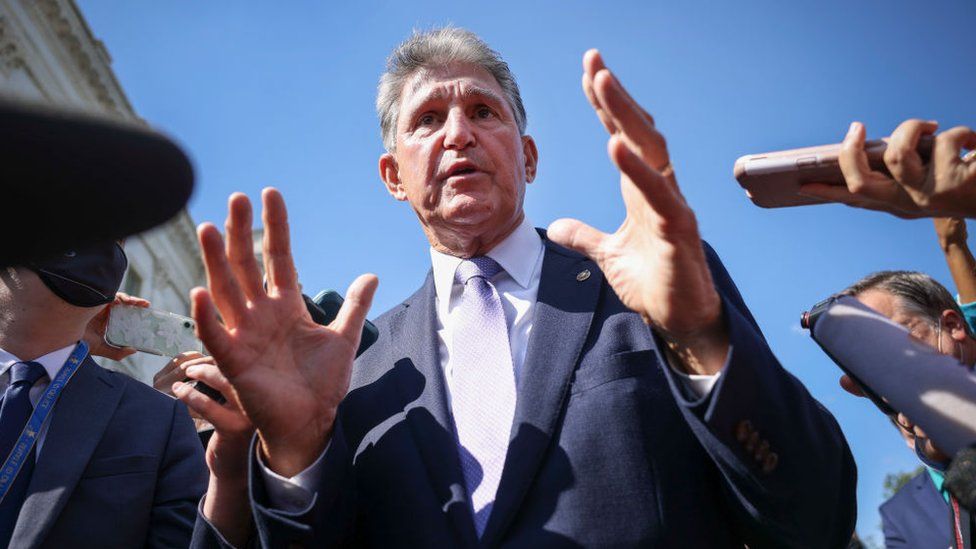In a blow to Democrats’ hopes of retaining control of the US Senate next year, Joe Manchin of West Virginia has said he will not run for re-election.
One of the most prominent centrists in Washington, Mr Manchin, 76, has been a critical vote for his party in a chamber it controls by only one seat.
But he has also antagonised President Joe Biden’s administration by standing in the way of its more ambitious plans.
His decision to step aside virtually assures Republicans win back his seat.
Rumours have swirled that Mr Manchin may seek a third-party presidential bid with the No Labels group – and those whispers will only grow louder with this announcement.
Once describing himself as a “centrist, moderate, conservative Democrat”, Mr Manchin has represented West Virginia in the Senate since 2010.
Since the turn of the millennium, the state has sharply realigned from mostly supporting Democrats to mostly supporting Republicans, and the party now dominates its elected offices.
But Mr Manchin, who was already familiar to voters as a former governor and secretary of state, has defied Republican attempts to win his seat.
For months, Mr Manchin remained tight-lipped over whether he would seek a third full term.
“I’ve made one of the toughest decisions of my life and decided that I will not be running for re-election,” Mr Manchin said in a video posted on X, formerly Twitter, on Thursday.
“But what I will be doing is travelling the country and speaking out to see if there’s an interest in creating a movement to mobilise the middle and bring Americans together.”
- What a Donald Trump second term would look like
- US election 2024: A really simple guide
- Four surprises that could upend the 2024 US election
A folksy retail politician with a keen understanding of his state’s conservative electorate, he has long performed a tightrope act that has courted him both critics and admirers.
Under the Donald Trump administration, he voted with Republicans more than any other Democrat, including controversially for two of Mr Trump’s Supreme Court picks.
But he also voted against the opposition party’s tax cuts and its efforts to repeal healthcare provisions in the Affordable Care Act.
As Mr Biden entered the White House in 2021, Democrats had just won control of the Senate by a single seat, meaning every member of the party was often needed to pass legislation.
But the West Virginian often played hard to get, holding his tongue over whether he would back or block key aspects of the president’s agenda.
Progressive Democrats were left fuming after Mr Manchin objected to and – almost singlehandedly – forced the White House to pare back its signature “Build Back Better” climate, tax and healthcare agenda.
Mr Manchin is among the lawmakers who has received the single most funding from the fossil fuel industry, and his dissent on climate bills has often put him at odds with his party.
That was best demonstrated last year when climate activists kayaked to his house boat, as it sat docked at a Washington DC marina, to demand his support.
But Democrats have avoided directly criticising him whenever possible, aware they may yet need to rely on his vote and out of the belief no other Democrat can win his Senate seat.
Next year, he was expected to face perhaps the stiffest challenge to his re-election, from an old nemesis – West Virginia Governor Jim Justice.
